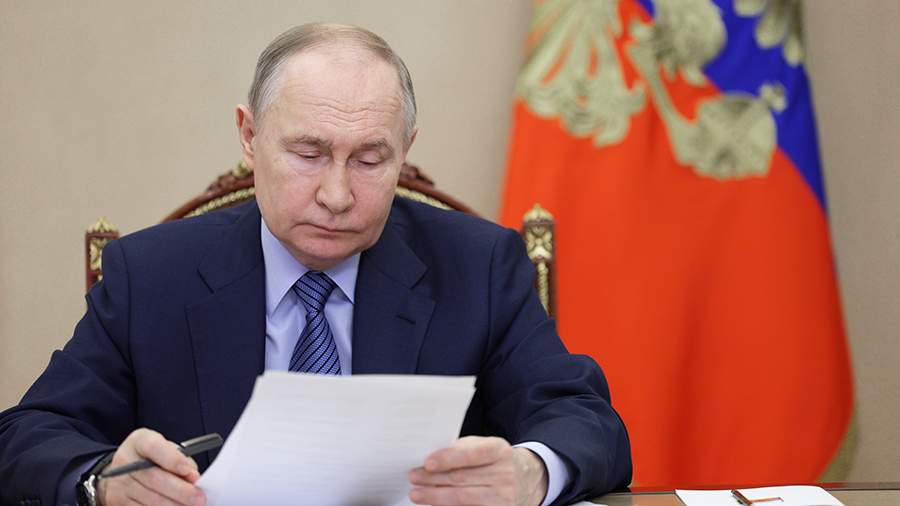Seventeen kilometers. That is the distance from the center of Tohmajärvi to the Niirala border station, the easternmost passenger crossing point in the EU. As late as 2019, almost 1.2 million passengers crossed the border.
It’s quiet now. On Saturday morning, Tohmajärvi seems to be an ordinary dormant municipality of 4,000 inhabitants, only a few advertisements in Russian violate the Finnish landscape.
The Russian language is both visible and audible. At the end of 2018, slightly more than four per cent of the population of Tohmajärvi spoke Russian as their mother tongue, which is the fifth largest in Finland in relation to the population. About six percent of the municipality’s women are Russians.
Veronika Uusimäki helps her son run the motel.
One There are Russian women who have settled on Lake Tohmajärvi Veronika Uusimäki56, who arrived in North Karelia from Sortavala in 2004. The reason was the same as for many other Russian women: love.
Alexander Kuznetsov, 36, followed Veronika’s mother and moved to Finland in 2010. Kuznetsov has been running a motel in Tohmajärvi for nine years, and Uusimäki helps her son whenever needed. The mother and son live in the motel.
The corona pandemic has taken away all the motel guests. No rooms are booked. There had been one overnight stay the day before.
Another was before. The motel accommodated both Russian tourists traveling to Finland and vice versa. Fortunately, Finns who were enthusiastic about domestic tourism stimulated their business in the summer.
Now the whole municipality is dead.
Alexander Kuznetsov has been a motel entrepreneur in Tohmajärvi since 2013.
Motel two clocks on the wall, one in Helsinki and one in Moscow. Both Kuznetsov and Uusimäki have dual citizenship, but neither wants to return to their country of birth.
It is good to be in Tohmajärvi.
“This is a wonderful place, really peaceful. People are friendly and help each other, ”they say.
“We are not talking about politics with Russian friends and relatives,” says Veronika Uusimäki, who has lived in Finland for 18 years.
Russian women living in Tohmajärvi have set up their own club called Friends, Uusimäki says. There they drink tea and talk about everything.
Except for politics. That is the subject on which the Russians in Finland are silent.
When you ask Uusimäki for an opinion Vladimir from Putin, his index finger rises in front of his mouth. Kuznetsov asks to turn off the recorder before he agrees to talk about the president.
Neither of them can understand the invasion of Ukraine.
A group picture hangs on the wall Sauli Niinistö with.
“Niinistö is a good president. He is calm, ”Kuznetsov describes.
Putin because of this, it is difficult to find interviewees with a Russian background in Tohmajärvi. Many fear for relatives and friends on the other side of the border if they publicly criticize the Russian leadership.
Their own access to Russia can also be denied, they believe. State lying, the return of the Soviet era and an opposition figure Alexei Navalnyin fate is repeated in the reasoning.
At Tohmajärvi’s K-Market, however, people dare to talk.
Raija Valtanen is not afraid to live next to the Russian border.
“It’s sad how one head of state, a dictator, makes the whole world hate Russia,” sighs the Soviet-born, who later moved to Lake Tohmajärvi. Raija Valtanen57.
“Putin is a stubborn dictator who doesn’t think of others. He is the worst person after Stalin and Hitler, ”Valtanen, who works as a salesman, continues.
Valtanen ‘s colleague, moved to Finland in 2004 to work Elvira Ishchuk40, refuses to comment on anything about Putin at first, but in the end he refuses:
“Putin doesn’t want to ask our citizens what we think.”
Elvira Ishchuk deplores the situation in Ukraine. “It affects us all Russians.”
Valtanen came to Finland also for love. Getting started in Tohmajärvi was not easy.
“Twenty years ago, there was prejudice and racism against the Russians. Customers barked at the whore. Now it’s completely different, we are equal, ”Valtanen recalls.
Valtanen’s husband died in an accident a few years ago, and relatives have enticed him to return back across the border, but he doesn’t want to. There is a difference between the countries and black and white, Valtanen compares.
One thing is clear. Russians and people with a Russian background are treated in Tohmajärvi like all other residents. None of the oncoming people have anything bad to say about them, even after the outbreak of the war in Ukraine.
“In North Karelia, people are really kind to the Russians,” Ishchuk points out.
According to Mehmet Giray, who moved from Turkey to Finland in 2007, Russianness can be seen in Lake Tohmajärvi. “Not much, but enough”
Before a pandemic crossing the border was commonplace for the people of Tohmajärvi. On the Russian side, people went shopping, enjoyed the culture and met locals at restaurants. And of course refueling.
At Tohmajärvi Teboil, the petrol liter now costs more than two euros.
“It has not come to mind,” says Arto Pirinen when asked about the boycott of Teboil by the war in Ukraine.
“It’s starting to be on the verge of pain,” he notes Arto Pirinenwhich also refuels for ATVs and chainsaws.
Fuel is consumed, as Tohmajärvi is still a strong agricultural operator. There are almost 200 farms in the municipality.
“Pretty salty,” Janne Hietala describes the price per liter.
Although the advertising lights of a competing company are shining across the road, the boycott of the Russian subsidiary Lukoil has not occurred to tankers.
“It must be remembered that Teboil entrepreneurs are Finns. They can’t do anything about it, ”points out that Tuupovaara Janne Hietala.
Complaint not from the mouth of the people of Tohmajärvi. We live here as anywhere, regardless of background. Of course, the border region suffers from the same problem as other Finnish parishioners. The share of pensioners among the people of Tohmajärvi is 40 per cent.
“It’s hard to try. Purchasing power is limited, ”complains the local R-kiosk retailer Päivi Mikkonen49.
Normally, a dozen or so Russians would visit the kiosk every day.
“That’s why I’ve studied Russian.”
At Päivi Mikkonen’s kiosk, Russian tourists were a familiar sight before the corona pandemic.
The outbursts of newspapers sold at the kiosk shout the distress of the war in Ukraine. The global situation is worrying, but credit for a stone’s throw from the border is strong.
“Having lived so close to the border all my life, it’s not exciting,” says Mikkonen calmly.
“My limit is not a concern at all. It has always been there, ”said the person at the kiosk Auli Jekkonen59, recalls.
“We’re just on the surface, but I’m not afraid of anything. If it comes, then it comes. There is nothing that can be done about it, ” Hannes Tolvanen82, thinks.
“You can be here in your own peace,” describes Aku Pakarinen, a 22-year-old from Tohmajärvi.
“Ten years ago, I was still looking for fuel across the border, but that action by the Russians at the border was just a joke as they lingered and stood at the border checkpoint. I had a full measure, ”Kalevi Tikka recalls.
Tohmajärvi the depth of snow is reported to be 83 centimeters. On the village track, the man walks with the wild skis on his shoulder.
“I’ve been skiing on these long skis almost all winter. It doesn’t matter if I’m on the track or on the side of the track, I’ll go where I like to go, ” Kalevi Tikka77, describes.
Until the last decade, Tika lived 30 kilometers away in the village of Kaustajärvi, in the former municipality of Värtsilä, which was annexed to Lake Tohmajärvi in 2005.
“I haven’t had to deal with them since I’ve been pretty secluded. They are similar people to us, ”says Tikka of the Russians in Lake Tohmäjärvi.
Tika’s grandfather established a farm in Kaustjärvi, the current border region, in the 1920s. In the peace of Moscow, the village was split in two and the Värtsilä ironworks and half of the Tika farm remained on the other side.
“I have seen nothing but a border. That’s what I got for a job, ”says Tikka, who worked as a border guard and non-commissioned officer.
He has no bad word about the Russians in Lake Tohmajärvi.
“People are just like us. There is no resentment. ”
Former soldier sharply analyzes the situation in Ukraine.
“Putin has apparently lost some of his order. It is no longer a normal human activity, ”he begins.
But Tikka is not worried about her family status.
“And if necessary, I still have a rifle in store, permission to do so and cartridges.”
“There is no need to be afraid of a person here,” says Tikka and walks home to rest.
Darts have lived near the Russian border all his life.
#Linguistic #minorities #Tohmajärvi #proximity #eastern #border #worry #locals #Russianspeakers #municipality #avoid #talking #stubborn #dictator







